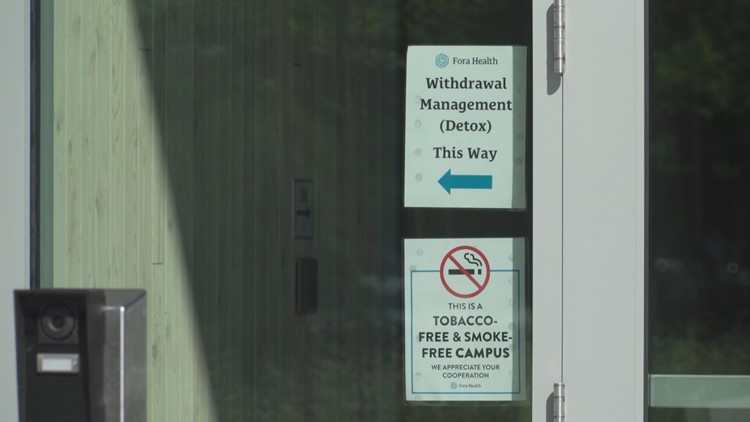SALEM, Ore. — To meet the growing need for mental health and substance use treatment, a new draft report finds that Oregon needs to add roughly 3,000 residential beds — or about 70% of its current capacity — within the next few years, at an estimated cost of half a billion dollars.
Gov. Tina Kotek directed the Oregon Health Authority last year to commission this survey of behavioral health treatment needs in the state, and the agency hired the firm Public Consulting Group to conduct the examination.
Oregon's serious deficit in behavioral beds comes as no surprise — several previous studies have looked at the state's treatment infrastructure and found it woefully lacking. A 2022 study by the OHSU-PSU School of Public Health concluded that the state would need to double its services to adequately meet the need for people suffering from addiction alone.
“Too many Oregonians are struggling to get the help they need for a mental health or addiction challenge, and the state needs to lead with a strategic approach to addressing these gaps in health care,” said Gov. Kotek in a statement. "We need more resources, to be sure, but we also need better data so we can better serve Oregonians. This preliminary assessment tells us more about the gaps we need to fill to ensure Oregonians in every corner of the state can access the care they need, when they need it.”
Kotek mentioned the forthcoming report during a press conference Tuesday announcing a tri-government emergency declaration due to fentanyl. The governor acknowledged that the emergency wouldn't directly translate into more treatment beds, but the study of behavioral health capacity would guide lawmakers in making those kind of investments.
The report that OHA commissioned is much more granular than previous attempts to assess the scope of Oregon's treatment deficits. Despite the legislature investing more than $1.5 billion in behavioral health over the last four years, OHA said, the state still has clear and present gaps.
The report found that the state has 4,819 behavioral health treatment beds statewide at present, and expansions that are already in the works will increase that number to 5,175. These include withdrawal management beds (aka detox), adult treatment, foster homes, state hospitals and psychiatric hospital care.
In order to meet the need, Oregon would need to add roughly 3,000 more residential treatment beds to the tune of $500 million over the next five years. Those are start-up costs, not the cost of operating facilities after the beds are added.
According to the report, Oregon needs between 1,156 and 2,169 beds for residential substance use treatment alone, which encompasses longer-term drug treatment. For short-term withdrawal management, the state needs an estimated 523 more beds.
For secure residential treatment beds — the kind found at Oregon State Hospital, which has been in the middle of a capacity crisis for several years — the report found that Oregon needs 171 more beds, which are in addition to 77 beds coming online soon.
“We now have clear and reliable preliminary benchmarks to pursue a sustainable multi-year funding and program effort to ensure every person in Oregon with a serious substance use disorder or mental illness can get the care they need,” said OHA’s Behavioral Health Director Ebony Clarke.
The report does not look at outpatient drug treatment, which is being better addressed by grants through Measure 110. In recent months, Measure 110 funding has also contributed to expansion of withdrawal management beds and some sobering or stabilization capacity for people in a behavioral health crisis.
OHA suggested that it will take several biennia, referring to the legislature's two-year budget cycle, to address these needs. In the short-term, lawmakers are focused on arranging funding for "shovel-ready" projects across the state, ones that are likely to come online within the next year or two.
“Our goal is to ensure that no one who needs and wants care for a mental health or substance use disorder should be turned away from lifesaving treatment,” Clarke added.
A final version of the report will be released in June, OHA said, with more definite cost projections and analysis of capacity needs.



